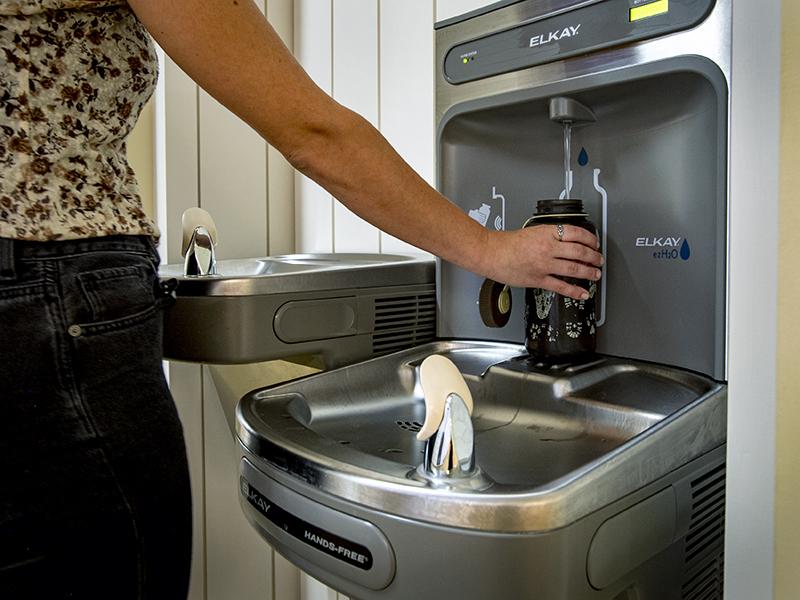Hands-free drinking water access a lasting addition to uptown campus
As many vestiges of COVID-19 are being removed from Tulane campuses, one key improvement remains. The installation of numerous hands-free bottle-filling stations on the uptown campus is one of the pandemic-driven upgrades that is here to stay, thanks to work by the Office of Sustainability, Facilities Services and a student-led, crowdsourced research effort.
During the 2019-2020 academic year, the Undergraduate Student Government Sustainability Committee undertook an ambitious assessment of existing drinking fountains and bottle-filling stations across the uptown campus. The committee was determined to reduce community reliance on bottled water, as bottles create a steady stream of plastic waste and are subject to no federal standards regarding quality or purity. The committee hoped that consumers armed with reusable bottles and access to filling stations could reduce campus reliance on bottled water. With this goal in mind, student volunteers assessed all campus buildings, making note of the location, type and condition of every water fountain and bottle-filling station across campus.
Together, then-chair of the Sustainability Committee Ella Catherine Strahan of the Class of 2022 and Office of Sustainability intern Darrah Fox Bach of the Class of 2020 compiled the crowdsourced data. Combined with the results of a student-interest survey, this detailed report was presented to Campus Services leadership, outlining a list of priority locations for new bottle-filling stations in academic buildings. In most cases, they recommended replacing the first-floor drinking fountain with a bottle-filling station.
This hands-on research and reporting would prove to be invaluable when contact-free access became a top priority as campus was prepared for the fall 2020 semester. With the data and proposal in hand, a hands-free combination bottle-filling station and drinking fountain was sourced, and 55 were installed throughout the uptown campus, including in residence halls. Campus Services and the Office of Sustainability also worked with Housing & Residence Life to identify high-priority locations in residence halls, including every floor on Monroe, Sharp and Wall residence halls. Buildings with bottle-filling stations are identified on the interactive uptown campus map, along with information on other campus sustainability efforts, including bicycle repair stations, EV chargers, and LEED-certified buildings.

